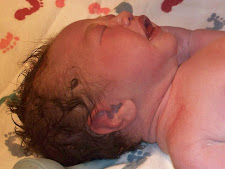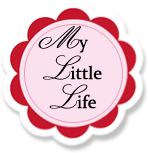Babies love and need to suck, so don't discourage it. In fact, you may have already discovered that a pacifier works wonders in helping your baby calm down. When the "binky" or your finger isn't available, your baby may even be able to find her thumb or fingers to soothe herself.
The American Academy of Pediatrics recommends using a pacifier at nap time and bedtime, based on evidence that using a pacifier may reduce the risk of SIDS (sudden infant death syndrome). That said, there's no need to reinsert the pacifier if it falls out once your baby's asleep.
Belly baby
Be sure you're continuing to put your baby down on her stomach for "tummy time" when she's awake. Babies should sleep on their back, but they also need to spend time on their belly every day to strengthen their neck muscles, which help them push up, roll over, sit up, and crawl. Tummy time will also help your baby avoid developing a flat spot on her head from being on her back.
By the end of this week, your baby may lift her head briefly and possibly move it from side to side when she's lying on her stomach. Try putting your face in front of your baby's to encourage her to hold up her head to look at you. You can also roll up a towel or receiving blanket and put it under her chest to help get her started with her push-ups. Soon, her nervous system and muscle control will mature and her jerky movements will become more fluid.
Self-soothing
Babies love and need to suck, so don't discourage it. In fact, you may have discovered that a pacifier works wonders in helping your baby calm down.
The American Academy of Pediatrics recommends using pacifiers at nap time and bedtime, based on evidence that using a pacifier may reduce the risk of sudden infant death syndrome (SIDS). When the binky or your finger isn't around, your baby may even be able to find her thumb or fingers to soothe herself.
Call it quits
If you or your partner smokes, you may want to put an end to your puffs. Secondhand smoke can be extremely dangerous for your baby — it weakens the lungs, makes babies more prone to ear infections, increases snoring and sleep-disordered breathing (a proven cause of health, behavior, and learning problems), and doubles the risk of SIDS. Even if you don't smoke when your baby's in the room, the harmful chemicals travel throughout your house in a matter of minutes.
Source














0 comments:
Post a Comment